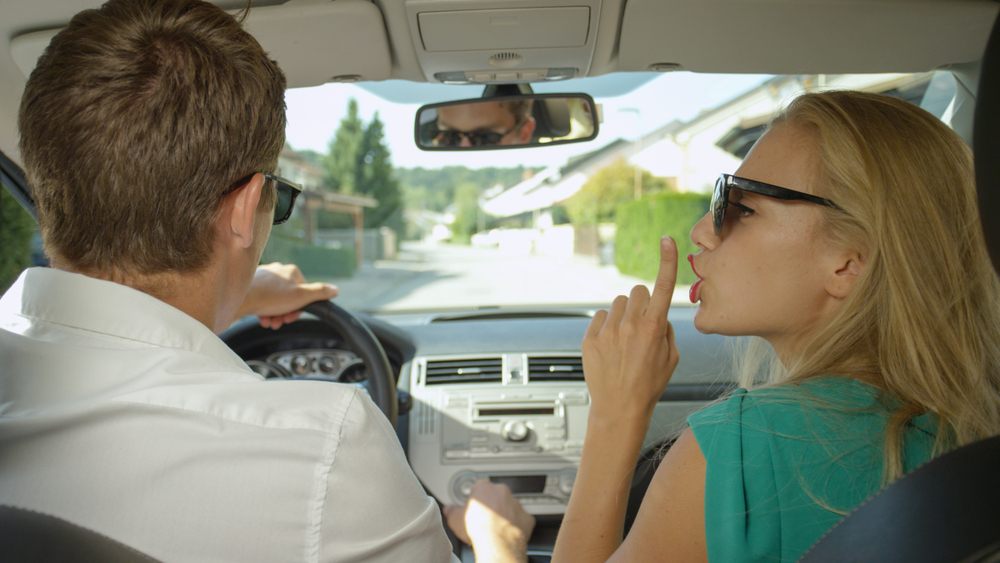Obviously, having someone flip the bird in your face isn’t the highlight of anyone’s day.

It’s a rude and aggressive gesture that can leave you feeling angry, hurt, or simply confused. However, how you react in that moment can make all the difference. Do you let it escalate into a confrontation, or do you find a way to de-escalate the situation and maintain your composure? It’s not always easy, but with the right approach, you can turn a negative experience into an opportunity for growth and self-awareness.
1. Assess the situation and your surroundings.

Before reacting, take a moment to assess the situation. Is the person a stranger or someone you know? Are you in a public or private setting? Are there other people around who could get involved? Understanding the context can help you choose the most appropriate response. If you’re in a potentially dangerous situation, prioritizing your safety is crucial. Consider removing yourself from the situation if possible.
2. Don’t take it personally (even if it feels personal).

Easier said than done, right? But remember, the person flipping you off is likely acting out of anger, frustration, or immaturity. Their actions reflect more on them than on you. Try not to let their negativity infect your own emotional state. Take a deep breath and remind yourself that you’re not defined by someone else’s rudeness.
3. Ignore it and walk away.

Sometimes, the best response is no response at all. By ignoring the gesture, you’re denying the person the satisfaction of getting a rise out of you. This can be especially effective when dealing with strangers or people you don’t care about. Walk away with your head held high, knowing that you’ve taken the high road.
4. Respond with humor.

If you’re feeling witty and the situation allows for it, a jokey or lighthearted response can defuse tension and even earn you some respect. A well-timed joke or a sarcastic remark can catch the offender off guard and show them that their actions haven’t fazed you. However, be mindful of the context and avoid escalating the situation with your humor.
5. Show compassion and understanding.

In some cases, the person giving you the middle finger might be going through a difficult time or struggling with their own issues. While their behavior is still unacceptable, showing a bit of compassion and understanding can be a powerful way to de-escalate the situation, Dr. Elaine Ryan notes. You could try saying something like, “I’m sorry you’re feeling frustrated” or “I hope things get better for you.” This unexpected response might disarm them and even encourage a more constructive dialogue.
6. Offer a gesture of peace.

Instead of returning the negativity, try responding with a gesture of peace, such as a wave, a smile, or a thumbs-up. This unexpected reaction can confuse the offender and potentially de-escalate the situation. It also demonstrates your maturity and unwillingness to stoop to their level.
7. Drive away (if applicable).

If you’re in your car and someone flips you off on the road, the safest and most sensible option is to simply drive away. Engaging with an aggressive driver can be dangerous and lead to road rage incidents. Focus on your own safety and let them go on their angry way.
8. Call the authorities (if necessary).

If you feel threatened or the situation escalates beyond a simple gesture, don’t hesitate to call the authorities. Your safety is paramount, and law enforcement can help de-escalate the situation and ensure your well-being. It’s better to be safe than sorry.
9. Try to understand their perspective.

While their action is rude, try to put yourself in their shoes for a moment. Why might they be so angry or frustrated? Could there be a misunderstanding or a deeper issue at play? While it doesn’t excuse their behavior, understanding their perspective can help you respond with more empathy and potentially resolve the conflict.
10. Don’t stoop to their level.

It’s tempting to retaliate with anger or aggression, but resist the urge. Remember, two wrongs don’t make a right. By remaining calm and composed, you’re showing the person that their actions don’t have power over you. You’re also demonstrating a level of maturity and self-control that they might not possess.
11. Talk to someone you trust.

If the incident has left you feeling upset or shaken, talk to a friend, family member, or therapist about it. Sharing your experience with someone you trust can help you process your emotions and gain perspective. They can offer support, advice, or simply a listening ear.
12. Learn from the experience.

Every encounter, even a negative one, can be a learning opportunity. Reflect on how you reacted and whether there’s anything you would do differently next time. Perhaps you could have communicated more effectively or set clearer boundaries. Use this experience to grow and develop your emotional intelligence.
13. Forgive (if possible).

Holding on to anger and resentment will only hurt you in the long run. If you can, try to forgive the person who flipped you off. This doesn’t mean condoning their behavior, but rather releasing yourself from the burden of negativity. Forgiveness is a gift you give yourself, allowing you to move on and find peace.
14. Focus on the positive.

Don’t let one rude gesture ruin your day. Shift your attention to the positive aspects of your life. Spend time with loved ones, engage in activities you enjoy, or simply take a moment to appreciate the beauty around you. Remember, you have the power to choose how you react to negativity and focus on the good in your life, the Mayo Clinic notes.
15. Remember your worth.

You are valuable and deserving of respect, regardless of someone else’s rude behavior. Don’t let their actions diminish your self-worth. Remind yourself of your strengths, accomplishments, and the positive impact you have on other people. You’re more than one negative encounter.




